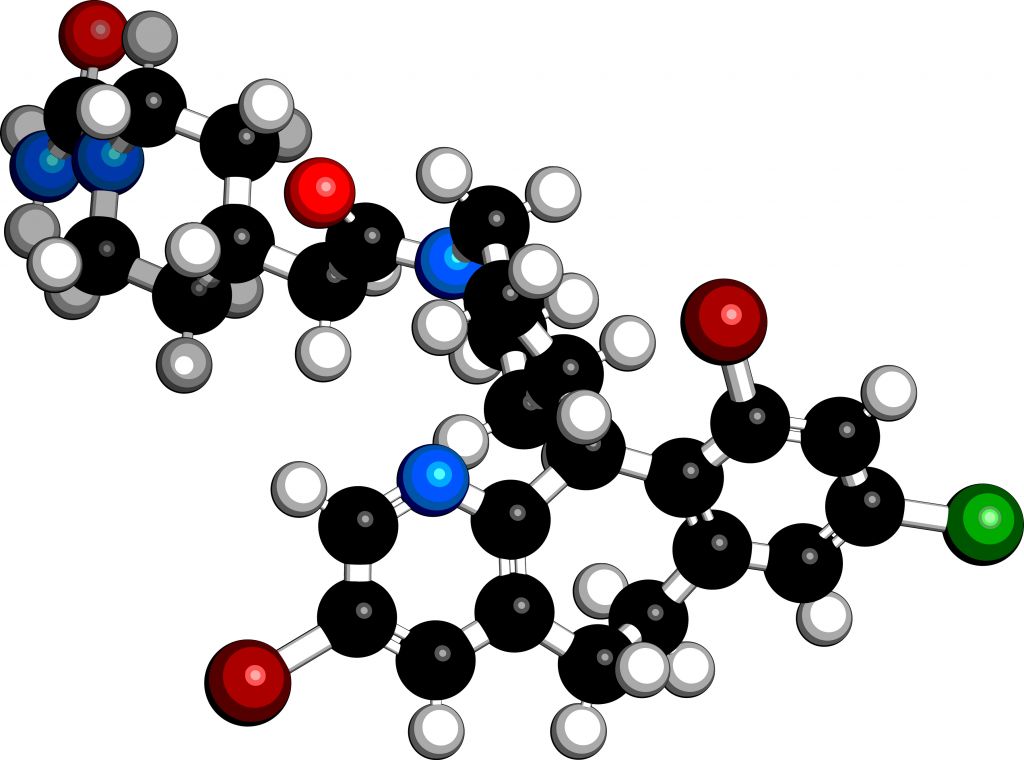Newsletter Signup - Under Article / In Page
"*" indicates required fields
Eiger BioPharmaceuticals Inc., which focuses on the development of innovative therapies to treat and cure hepatitis delta virus and other serious diseases, has received marketing authorization from the European Commission (EC) for Zokinvy (lonafarnib), a therapy for children and young adults with Hutchinson-Gilford progeria syndrome (HGPS) and processing-deficient progeroid laminopathies (PL).
Collectively known as progeria, HGPS and PL are ultra-rare and fatal pediatric diseases that cause dramatically accelerated aging and premature death. The main cause of death is heart attack or stroke due to severe hardening of the arteries. Without Zokinvy treatment, children with HGPS die at an average age of 14.5 years.
“Until now, no medication has been approved in Europe for people living with this debilitating condition. For the first time we have a therapeutic option with Zokinvy which has been proven to meaningfully extend the average life span of children with HGPS by nearly one third,” said Thorsten Marquardt, Paediatric and Adolescent Medicine, University of Münster, Germany.
“With less than 5% of rare diseases having an approved treatment, the authorization of Zokinvy represents both a significant medical milestone and increased hope for the progeria community.”
CHMP positive opinion
The EC authorization follows the positive opinion granted by the European Committee for Medicinal Products for Human Use (CHMP) in May 2022, which was based on the positive results of two pivotal clinical trials demonstrating that Zokinvy, an oral disease-modifying agent which targets the cause of progeria, lowered the risk of death in children by 72%, and extended life by an average of 4.3 years in children and young adults with HGPS.
“The European Commission’s approval of Zokinvy, Eiger’s first approval in Europe, is the culmination of years of dedication and commitment by the Eiger team and the Progeria Research Foundation, our partners in this pioneering endeavor,” said David Cory, president and CEO, Eiger.
“Eiger’s mission is to bring innovative medicines to underserved patients around the world. We are proud of this approval which further demonstrates our ability to partner with investigators and regulators to achieve that mission.”
“The approval of Zokinvy is extremely welcome news for families and the entire progeria community,” added Marjet Stamsnijder, president, Progeria Family Circle.
“I am delighted we now have a treatment approved for use in Europe that has the ability to transform the lives of children and young adults with progeria.”
The European Commission’s centralized marketing authorization is valid in all 27 EU member states as well as Iceland, Liechtenstein, and Norway. Regulatory review is ongoing by the UK’s Medicine and Healthcare products Regulatory Agency (MHRA) as part of the European Commission Decision Reliance Procedure. Eiger expects to make Zokinvy available following successful completion of reimbursement discussions country-by-country.
About progeria
Collectively known as progeria, Hutchinson-Gilford progeria syndrome and progeroid laminopathies are ultra-rare, fatal, genetic premature aging diseases that accelerate mortality in young patients. There are approximately 20 children and young adults with progeria identified across Europe.
HGPS is caused by a point mutation in the LMNA gene, yielding the farnesylated aberrant protein, progerin. Progeroid laminopathies are genetic conditions of accelerated aging caused by a constellation of mutations in the LMNA and/or ZMPSTE24 genes yielding farnesylated proteins that are distinct from progerin.
Without Zokinvy therapy, children with HGPS commonly die of the same heart disease that affects millions of normally aging adults (arteriosclerosis), by an average age of 14.5 years. Disease manifestations include severe failure to thrive, scleroderma–like skin, global lipodystrophy, alopecia, joint contractures, skeletal dysplasia, global accelerated atherosclerosis with cardiovascular decline, and debilitating strokes.
About Zokinvy (lonafarnib)
Zokinvy is a disease-modifying agent that blocks the accumulation of defective progerin and progerin-like proteins which leads to cellular instability and premature aging in children and young adults with progeria. Zokinvy has demonstrated a statistically significant survival benefit in children and young adults with HGPS.
The most commonly reported adverse reactions were gastrointestinal (vomiting, diarrhea, nausea), and most were mild or moderate (Grade 1 or 2) in severity. Many progeria patients have received continuous Zokinvy therapy for more than 10 years.
Eiger licensed exclusive worldwide rights to Zokinvy from Merck, known as MSD, outside of the U.S. and Canada. Merck will not receive any milestone payments for the development of Zokinvy for the treatment of progeria and has waived royalty obligations from Eiger for a specified quantity of Zokinvy.
Zokinvy EU indication
In Europe, Zokinvy is indicated for the treatment of patients 12 months of age and older with a genetically confirmed diagnosis of Hutchinson-Gilford progeria syndrome or a processing-deficient progeroid laminopathy associated with either a heterozygous LMNA mutation with progerin-like protein accumulation or a homozygous or compound heterozygous ZMPSTE24 mutation.
About the Progeria Research Foundation
The Progeria Research Foundation (PRF) was established in 1999 by the family of Sam Berns, a child with progeria. Within four years of its founding, the PRF Genetics Consortium discovered the progeria gene, a collaboration led by Francis Collins, acting science advisor to the President of the United States and former director of the National Institutes of Health (NIH).
PRF has funded and co-coordinated all Zokinvy-associated clinical trials for progeria and progeroid laminopathies, conducted at Boston Children’s Hospital, and supports scientists who conduct progeria research worldwide.
PRF’s International Patient Registry includes over 350 children with progeria in 70 countries. PRF is the only non-profit organization solely dedicated to finding treatments and the cure for progeria and its aging-related conditions, including heart disease. The organization fills a void, putting these children and progeria at the forefront of scientific efforts.






